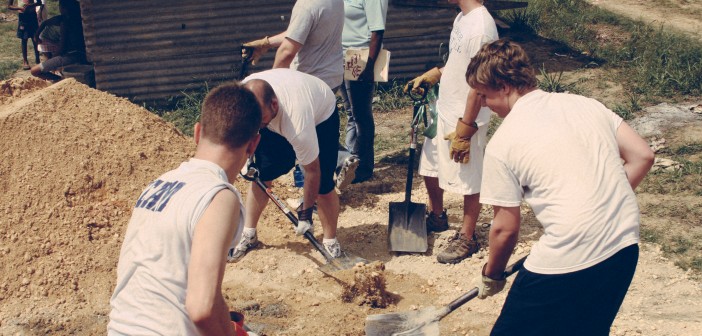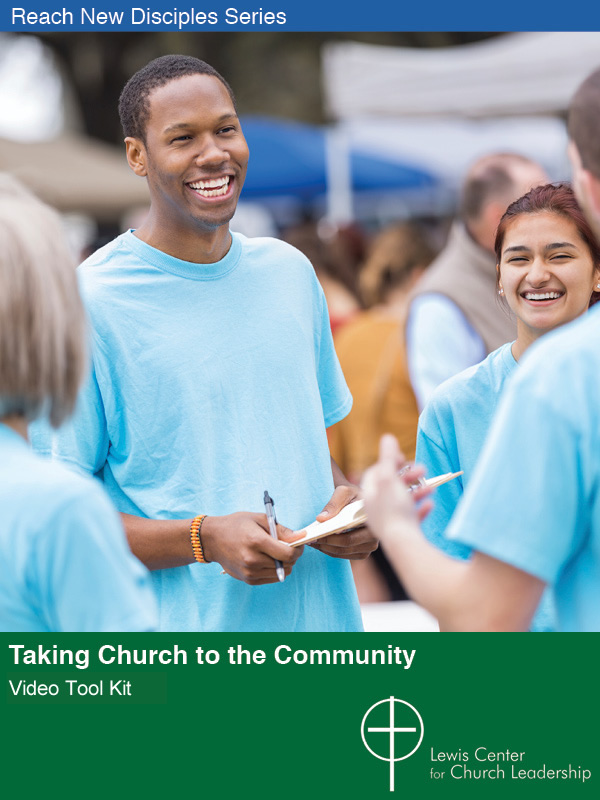A few years ago, I ran into Tony Campolo, prominent leader in missional evangelism. He had been at the Clinton Global Initiatives meeting. We sat down for lunch, and he was fuming. “David, do you know how many Christian organizations are at work in Haiti today? There are 900. And after 40 years of all that mission work, Haiti is no better off today.” “Why do you think that is?” I asked. He said: “Because they aren’t there to do good. They’re there to feel good.”
He meant to provoke, of course. But it made me think about my kids’ mission trips to Appalachia. Church volunteers have put enough paint on those houses to hold up in a hurricane, but destitution is as deeply rooted as the Kudzu they pull out each summer. The good feeling we experience in mission is important. It is an experience of the Holy Spirit. But we must also care about results.
The church used to do its good work at the denominational level — deploying missionaries, establishing colleges, orphanages, and hospitals. Through agencies like the United Methodist Committee on Relief, Lutheran World Relief, and Catholic Charities, the church collected funds for poverty and disaster relief. It also spawned the creation of large-scale para-church organizations like the YMCA, Goodwill Industries, and World Vision. All these structures are still often the best way to deliver services fast and efficiently.
But now we see congregations of all sizes becoming generators of both local and international mission. And we see the rise of the missional Millennials. These are the people we sent on youth mission trips, and they learned the lesson. Now, they aren’t interested so much in saving the church; they want to save the world.
This means congregations must change some fundamental assumptions. “Missions” is not a program we take on once we are strong enough. It is not discretionary spending. It is the basic need of the church. We have to prepare church leaders to be mission entrepreneurs and to acquire new knowledge and skills.
Let me suggest five guidelines to help us all do good well.
- We are volunteers but not amateurs. The church is the world’s oldest corporation. The term “corporation” derives from the Latincorpus as in Corpus Christi — the Body of Christ. As the world’s oldest corporation, we should be the most serious about doing our work. Our strategies should reflect careful research and training. We must hold ourselves accountable to high standards.
- The fruitfulness of our endeavors must be as important to us as the good feeling they engender in us. Fruitfulness is a key requirement of God found throughout scriptures. Time and again, God does not give points for trying or for good intentions. The barren tree is cursed, and the grapevine is pruned to produce fruit. This means we must establish metrics that matter and evaluate our work.
- Don’t reinvent the wheel. Let’s learn from the successes and failures of those who have already been laboring in the mission field. The odds are that a good 501(c)3 has already been formed that can help us do good well.
- Relief begets development, and development begets advocacy. Those who reacted to Hurricane Katrina, after they helped shovel mud out of living rooms, began to ask how to help rebuild communities. And then, they began to ask about why poor communities remain food deserts. Let’s minister to whole communities.
- Our goal should be missional relationships, not mission projects. A project is something done to someone else for a limited time. Mission is about relationships. When youth come back from an Appalachian mission trip, they consistently say that they learned more and received more from those they were serving than they gave. This is important spiritual insight and good practical advice. The school principal, the homeless man, and the director of the clinic in West Africa know much more than we do about what they need. And, there is no problem I can think of that is simple and can be solved in a few years. Don’t adopt a school one year and drop it two years later. The people who come to the soup kitchen on Thanksgiving are there the following week too. Preventing the next Ebola outbreak, or the next Ferguson, requires decades-long relationships.
We live in a time of great opportunity and spiritual revival. Where the need is greatest, the Christian movement is strongest and the Holy Spirit is most evident. God is at work offering hope in desperate places and calling us to “proclaim the acceptable year of the Lord.” But, if we are serious about discipleship, then we should seek change and care about effectiveness.
Related Resources:
- Doing Good Well Resource
- Fruitful Leadership for a Mission-Shaped Church by David McAllister-Wilson
- Measuring What Matters: A Conversation about Metrics and Mission by Ken Carter
- Best Practices for Short-Term Mission Trips by Laurie A. Occhipinti







